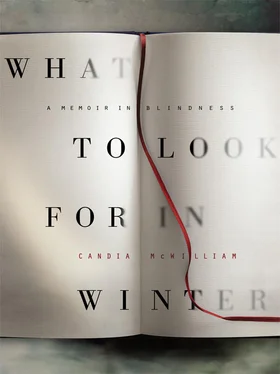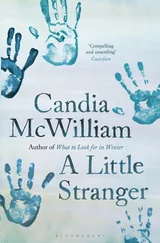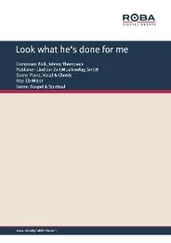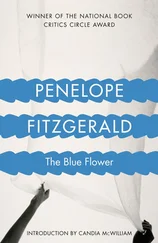Why don’t you write your memoirs?’ I’ve been asked, or, worse, ‘Why don’t you write your life story? No one would believe it.’
Well, that’s why.
My friend Allan Massie wrote to me in 1996 that I was, as a novelist, ‘insufficiently prolific’. But for one thin book of stories, I am exactly as unprolific now as I was then.
My last novel was published in 1994, my last book of short stories in 1996. It’s not that I’m not writing, or it wasn’t, but rather that I had taken a wrong turning and got stuck. I saw this baulk reflected back to me in every face I met. It got so bad that I could not bear the glare.
That unbearable glare has in the last years taken on an entirely new meaning for me.
Friends who knew me better than the ones who simply asked about a memoir, said, ‘You really must write something about Scotland; it’s changed so much since when you were a child.’
In the new millennium, I attended a rehabilitation clinic for alcoholism. When the press discovered this, for a whole day I couldn’t walk through my native city without being stopped for I was that day’s page three and four girl; double spread, as it were, ‘my alcoholic hell by Scots writer’. I had my youngest child Minoo with me. His reaction was phlegmatic: ‘People who believe that angle believe that angle,’ he said. I telephoned the other children. One was in a pub in Caithness; I worried that he would be hurt. ‘Nonsense,’ he said, ‘I’m up here with a few of the boys carrying on your tradition. Seriously, Mummy, it’s fine.’ My daughter had left a long soothing message on every telephone in Scotland that might pertain to me about the nature of truth and corruption and how dreadful it must be — and she’s right — for really famous people.
Nonetheless all three children lived the painful truth of having an alcoholic mother. When it came to be known by certain publishers that this was the case, just one feeler came out to me. Would I write a misery memoir: ‘Middle-class, middle-aged woman at War Hotel spills all’, sort of thing? ‘War Hotel’ is the term used to describe rehab when you want to big it up.
My reply to this was the worst possible and constituted the last drink I’ve had to this day. It lasted a fortnight, I think. One drink being too many and a thousand not enough.
In the rehabilitation centre, which was set in a house about whose architecture and inhabitants, The Souls, I had once, long ago, written a review, several of the counsellors, themselves mostly ‘in recovery’, asked me if I would write about the experience. I was surprised because confidentiality is one of the tenets of all twelve-step programmes of recovery from addiction. They said, ‘No, yours would be different; it could help people.’
To one of my temperament, to be of use to others is an irresistible spur. Even my last child was an attempt to please my mother-in-law who had said bitterly, ‘I expect I’ll get a book a year instead of a grandchild.’
Still, I wrote no memoir, but I was thinking it. Towards what end I did not know, but I’m glimpsing now.
I didn’t see it coming, but in this spring of 2008, I’ve had to close down on my other addiction, far more serious than the drink, that was lifelong, beautiful, consolatory, solitary and terminal: reading.
For it appears that I am gone blind.
Blindness, and I gather that this is so for many who cannot see, is not a solid or unmodulated blackness such as one might imagine comes over the head of a hawk when you put on its hood. In addition my blindness could be termed illegitimate, since it is not so that my eyes cannot see.
It is simply the case that my brain has chosen to close them. For twenty-two hours every day I am unable to open them.
That is the reason why I’m writing a book more full of ‘I’s than I’m temperamentally moved, or perhaps even equipped, to. When you imagine a writer writing what do you see in your mind’s eye? I’m not talking about those pictures of writers’ studies in lifestyle sections. I’m talking about the thing itself, the solitary maker of what you read.
Unthink it now, perhaps, for I am not actually writing at all, but dictating, pacing a room sixteen of my paces long and fourteen wide and having my spoken words typed by a fine-featured young woman with the auspicious name of Liv Stones. I am marching blindly to and fro with my Diet Coke, carrying my pointless spectacles and trying to think aloud in sentences and paragraphs, I hope for your benefit, or, better, your pleasure.
Before I went blind, I would if forced to choose my most beloved author have said Henry James. He has been joined by Tolstoy and Proust. But he is still my great love and here it is irresistible to put in his tribute to Miss Theodora Bosanquet, his last, near-telepathic amanuensis.
James wrote to his brother William:
A new excellent amanuensis, a young boyish Miss Bosanquet, who is worth all the other (females) that I have had put together and who confirms to me in the perception afresh — after eight months without such an agent — that for certain, for most, kinds of diligence and production, the intervention of the agent is, to my perverse constitution, an intense aid and a true economy! There is no comparison.
I managed to read about the first twelve words of that aloud to Liv, by holding my eyelids open with my fingers, but it got too sore and if I waste sight this early in the day I will be bumping into things like a bumblebee by elevenses. I fall over a lot and am covered with the sort of bruises that worry social workers. Last week I had a pretty black eye that I wanted to keep for longer; I came by it walking into the bough of a pollarded wisteria in Radnor Walk. Since the blindness really took hold, I have hardly worn eye make-up and I had forgotten what an enjoyable, if minute, recreation the painting of one’s own eyes is. I feel like a Greek fishing boat without its painted eyes. Without my sparkle I can’t seem to see my way. In India mothers put kohl on babies’ eyes to ward off blindness. My black shiner was a beautiful mix of colours: navy, rose, ochre, olive, ultramarine. It returned one of my eyes to me in definition at least, for they feel as though they have fallen in and dried out like deserted eggs, or like painful stones behind crisped, gluey lids. It is to be hoped that together Liv and I may either lift, or bring life to, those stones.
Why call this chapter ‘Earpiece’? Because I have to accept that I cannot read through my eyes and must listen (I still can’t call it reading) through my ears. I held out pridefully, typically, self-punishingly, until 10 July 2007, when a friend got me to listen to On Chesil Beach by Ian McEwan on her iPod. The iPod was on speakers because I still cannot bear to block another sense by putting things in my ears and stopping up two more holes in my head like Odysseus as he avoids the Sirens’ song.
You can’t hide in a talking book, and with my iPod problem I can’t ‘read’ in company. But that’s lucky, in a way, as I am almost always alone.
I do not live with my husband. I left him more than ten years ago. We are legally separated but not divorced. It was a mistake. He said to me when I went blind, ‘Perhaps you have had to lose everything to return to yourself and your art’, and it’s a thought, though rather too grand for me, who have always put on a clean, ironed, white apron in order to sit down to write. It’s the sort of thing you can say about dead people. I do feel dead sometimes. I feel like a fat ghost.
What’s the difference between the old way of reading and this new listening? Partly that is what this book will be about. In practical terms, there are the questions of the machines and the vital question of the reader, or actor, of the book. Machines first: I like tapes, even though they go wrong and are soon to become obsolete; CDs, with their wafery holographic smoothness, just don’t say ‘words’ to me. But I consume both in inordinate quantities. Part of whatever it is that has gone wrong in my brain involves broken sleep and where I would once have turned to a book I click on the merciful munching tape or set the CD spinning.
Читать дальше











